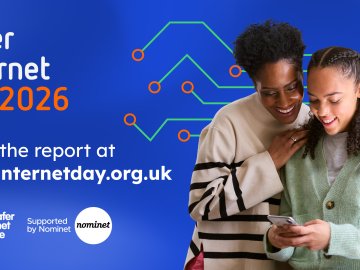The Safer Internet Forum 2024 brought together policymakers, industry leaders, educators, and young people to address the pressing challenges of online safety. This year’s discussions focused on pillar one of the BIK+ strategy, which emphasises safeguarding children and young people from harmful content and cyberbullying.
The forum highlighted recent advancements in regulatory frameworks, the growing complexity of online risks, and the tools needed to build a safer digital environment. Below is a summary of the key themes and takeaways from when SWGfL attended earlier this month.
Rising Awareness and Action on Online Risks
Over the past year, public and governmental attention on online risks to young people has grown significantly. Cyberbullying remains a top concern, as evidenced by the high number of cases reported to Insafe helplines. Campaigns advocating for stricter control over smartphone and social media use for younger teenagers have also gained traction.
Among the notable developments:
- France has proposed limiting smartphone use for younger children and only permitting social media access to those aged 15 and above, citing concerns over mental health and screen time.
- Italy has introduced guidelines prohibiting smartphones and tablets in primary and lower secondary school classrooms.
- The implementation of the Digital Services Act (DSA) across Europe is creating stricter rules for platforms, aiming to curb harmful content and fostering safer online environments.
Insights from the Youth-Led Workshop
One of the forum’s most compelling sessions was a youth-led workshop that shed light on the real challenges young people face online. Their perspectives underscored both the scale of the problem and the urgent need for solutions:
- The Scale of Online Abuse: Over 300 million young people are exposed to online abuse each year. Concerningly, half of those who encounter harmful content take no action.
- Violent Content: Exposure to violent material online has been linked to increased aggression, emotional desensitisation, and significant mental health risks such as anxiety, depression, and PTSD.
- Sexualised Content: Many young people encounter sexualised content before they can comprehend its implications.
- Gender Stereotypes and Adult Content: Harmful portrayals of gender in online content distort young people’s understanding of relationships and reinforce damaging stereotypes.
- Grooming and Sextortion: Grooming and sextortion cases have risen sharply, particularly targeting boys aged 14–17 with specific platforms emerging as hotspots for these activities.
Young People’s Recommendations
The youth participants offered actionable recommendations to combat these challenges:
- Implementing stronger age-verification measures and content moderation systems.
- Enforcing greater accountability and transparency from tech companies.
- Providing integrated mental health support on platforms.
- Expanding digital literacy education to empower young people to navigate online risks.
- Ensuring regulatory oversight to hold platforms accountable for harmful content.
Key Themes from the Forum
The discussions at the Safer Internet Forum 2024 highlighted that online risks often reflect broader societal issues, amplified by the digital space. Addressing these challenges requires a dual approach:
- Technical Solutions: Stronger content moderation, age verification, and accountability measures.
- Cultural Change: Engaging communities to foster a more supportive and responsible online culture.
The youth-led workshop demonstrated the importance of involving young people in these conversations, as their insights are critical to developing effective solutions.
Collaborative Approaches
The Safer Internet Forum 2024 underscored the importance of collaboration among stakeholders—policymakers, tech platforms, educators, and young people—to create a safer digital environment. While progress has been made, the forum called for continued efforts to strengthen protections, enforce accountability, and empower young people with the tools and support they need to navigate the online world safely.






